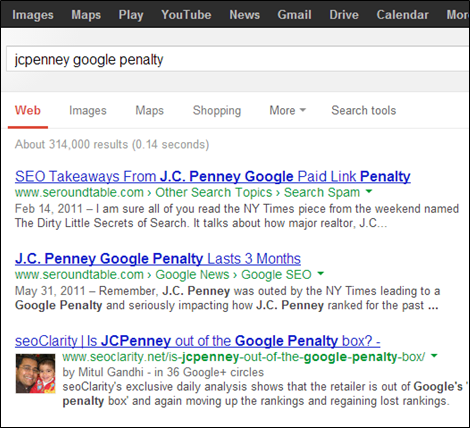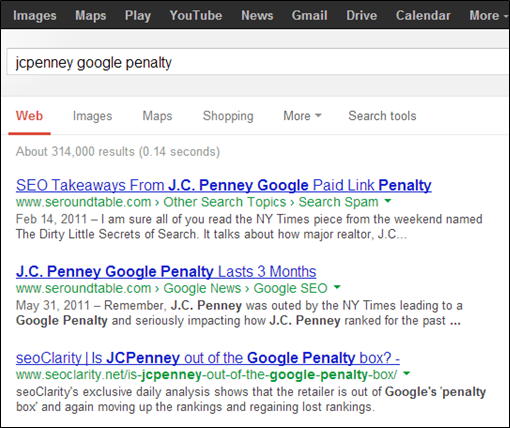2014 SEO Roadmap: Adopting Semantic Markup
In Google’s relentless pursuit of organizing the world’s information, the most exciting shift we’ve seen over the last year is about its ability to understand the “meaning” behind content (via the Knowledge Graph) and queries (via its Hummingbird algorithm update). In the past, Google had to rely on the words on the page, matching them […]
In Google’s relentless pursuit of organizing the world’s information, the most exciting shift we’ve seen over the last year is about its ability to understand the “meaning” behind content (via the Knowledge Graph) and queries (via its Hummingbird algorithm update).
In the past, Google had to rely on the words on the page, matching them to the words that someone searched on. Now, the revolution that is upon us is matching the intent of the query to the suitability of a page that matches that intent.

Smart marketers saw structured data markup as being an important part of their SEO strategy in 2012 and 2013. The trend and push around it has grown substantially — two out of three enterprises surveyed say they plan to make implementing or expanding structured data markup one of their top priorities for 2014 (Clarity Global SEO Conference, September 2013).
I find that when companies begin thinking about whether or not to spend the time and effort on implementing or expanding semantic markup, most of them hit a snag because they start with the following question.
Will Semantic SEO Help My Rankings?
That’s the wrong question — and the wrong way to approach SEO as a marketer!
If I told you that you could have twice as much traffic by ranking in position #2 as opposed to position #1, would you care about rank positions?
As a marketer, my end goal is not the highest possible rankings; it is the highest possible traffic, conversions and revenue (however you define “success” for your business).
It is something we tend to forget because search engine limitations of the past have trained us to think of rankings and traffic/revenue/conversions as synonymous. That’s not the case and hasn’t been for a while — and smart marketers know that.
Keeping your 2014 roadmap in mind, ask these 3 questions when thinking about where structured data markup fits in:
1. Will it improve the user experience and interaction with my brand?
The answer is a resounding YES. While structured data markup on your page is not visible to visitors, the rich snippets that markup provides in the SERPs allows for a much more engaging experience for users.
Compare the results below:
Vs.
This is a great example of markup used to provide users with a richer experience. Being able to see the image, rating and reviews at a quick glance, without having to click through or read lengthy sentences, is a big plus. Regardless of its ranking in the SERPs, consider how this rich listing might stand out from the higher-ranking competition.
2. Is it aligning with how search engines will handle searches and search results in the future?
You guessed it; the answer is YES.
The old format of search results — as an ordered list of progressively less relevant sites — is fundamentally flawed, a result of decade-old limitations that search engines are striving to surpass. Google has already made great progress in improving the ordered list format from one based on just keyword matches to one that accounts for diversity of opinion and sentiment, freshness, personalization, localization and other factors.
Semantic search is the pursuit of helping respond to both implicit and explicit queries based on the meaning behind the queries — the challenge of getting users from a question to an answer not only with fewer clicks or searches, but in many cases, without a click at all.
Google’s knowledge graph, instant answers, and Google Now are great examples of the future of the searching experience. With these technologies, relevant information is available based on the implicit (behaviorally- or environmentally-based) or explicit (a typed or voice search) query. Search engines return the right answers — not just a list of links to choose from. By using structured markup, you can help the search engines better understand how your content provides a solution to a query now and as it evolves in the future.
3. Will it help improve my bottom line?
Well, okay… for this one, I will say, “It depends.” If you’re doing things correctly on your site as far as converting visitors and you have decent rankings (meaning, you have the fundamentals in place to actually warrant a ranking on the top couple of pages), structured markup will most definitely help improve your click-through-rate — your share of the clicks from the search results page.
Rich snippets (driven by structured data markup) have a tremendous impact on the click-through-rate in listings. In fact, at SMX Advanced, I had the honor of presenting on a Google+ Authorship test where we saw a 2x lift in clicks for a blog post with author markup compared to one without.

2x Lift in Traffic with Authorship Markup!
Have SEO Fundamentals In Place
If you have fundamental technical or content issues on your site — missing page titles, broken links, duplicate content — your focus should be there. Your site must be in order before you can participate effectively in the changing search experience.
So what are you waiting for? Your existing digital assets — videos, reviews, products, events, local business information — can be working harder for you if you provide search engines a little help in understanding them. Make sure semantic markup is part of your roadmap for 2014, because you can bet it is for your competitors!
Opinions expressed in this article are those of the guest author and not necessarily Search Engine Land. Staff authors are listed here.
Related stories
New on Search Engine Land


